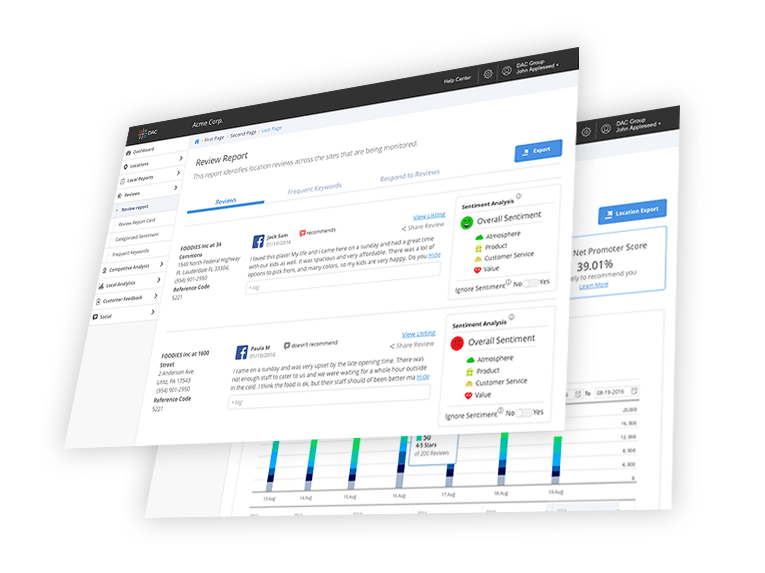
Maximize your local presence through strategic location management.

Consumers have tipped the balance of power. They have instant access to almost everything there is to know about any business—and can make or break brands through the collective power of reviews, ratings, and user-generated content (UGC). In this new dynamic, it’s essential for businesses of all shapes and sizes to not only monitor but actively manage their online reputations.
Reputation management is, very simply, the practice of influencing stakeholder perceptions and public conversations about an organization and its brands. It includes monitoring conversations, responding to reputation threats, and proactively seizing opportunities to boost perception.
In a practical sense, reputation management may involve entire teams spending countless hours on search and social media platforms such as Google, Facebook, Instagram, and YouTube—as well as marketplaces such as Amazon—to mitigate negative reviews and amplify positive ones. And due to the ever-increasing volume of reviews and variety of channels, online reputation management will only become more challenging as it emerges as one of digital’s most critical disciplines.
People pay attention to brands’ online reputations. In fact, 98% of consumers say reviews and ratings are the most influential factor in making a purchase, comfortably surpassing other fundamental factors like pricing and free shipping. In that sense, showcasing reviews and ratings not only drives brand perception but also serves as a significant driver of business revenue. Research shows that products with at least five quality reviews are 270% more likely to be bought—and that consumers spend considerably more with companies that respond to their reviews compared to those that don’t.

DAC’s proprietary review monitoring dashboard
The impact of ratings and reviews extends beyond products and into locations. For example, we know that for every star increase on Yelp, businesses see a revenue increase of between 5-9%. That makes online reputation management a particularly important pursuit even for multilocation businesses that primarily transact offline.
Subscribe to our monthly newsletter.
Reputation management is often thought of as a standalone effort, but the effects are amplified when it sits at the heart of a greater digital marketing strategy, with cohesive efforts connecting it to listings management, digital media, social, SEO, and more.
While marketers instinctively understand the potential negative impacts of failing to actively manage online reputation or engage with reputation management companies, the considerable positive strategic implications of this work are frequently overlooked. Consider the following benefits you could realize by implementing an all-encompassing online reputation management strategy:
Realizing the true potential and impact of the voice of the consumer requires a holistic reputation management program. So, what steps can you take to implement a reputation management strategy? As a reputation management specialist, DAC’s subject matter experts have a few recommendations for marketers:
Want to learn more about reputation management and how you can implement your own digital reputation management program? Our findings from a recent global study of nearly 900 marketing executives around the world uncovered some fascinating results—and it’s all yours for free.

Maximize your local presence through strategic location management.
Maximize your local presence through strategic location management.
Subscribe to our monthly newsletter.